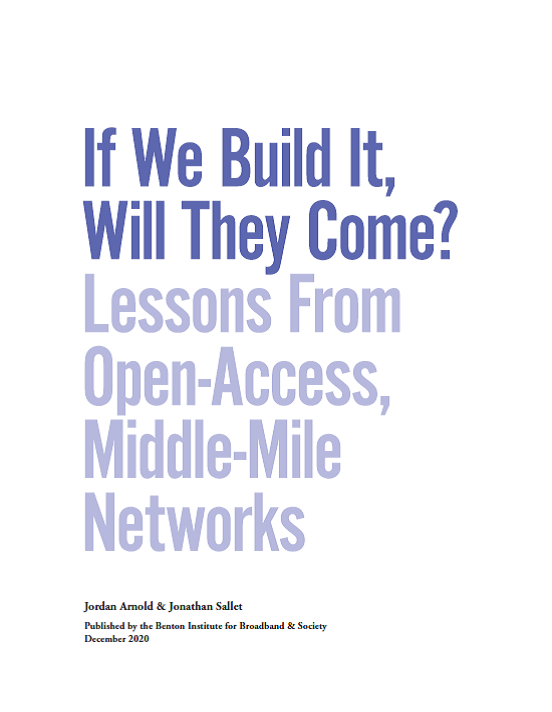The Commonwealth’s MassBroadband 123 middle mile network received praise in a new report by the Benton Institute for Broadband & Society. The report touted the effectiveness and importance of building open-access, middle mile networks into the nation’s broadband infrastructure. Middle mile networks are important connection points in communities where internet traffic is then transferred to crucial 'last mile' networks that connect homes and businesses.
The report's authors, Jordan Arnold and Jonathan Sallet, highlighted the significant cost savings that the state-owned network provided to a small town like Alford, Mass., which was previously unserved by broadband:
In Alford, Massachusetts, a rural town of roughly 350 residents, the presence of the MassBroadband 123 middle-mile network saved the town the cost of building fiber to the closest internet point-of-presence—20 miles away. The cost of building that middle-mile connection would have been more than the town’s $1.5 million cost to build fiber-to-the-premises to all residents of Alford.
In addition to the connection to MassBroadband 123, Alford’s municipally-owned network was also supported by over $700,000 from the Commonwealth’s Last Mile grant program, funds which complemented the investment made by the municipality to connect homes and business in the community, which has nearly 500 residents.
Completed in February 2014, MassBroadband 123 provides fiber-optic connectivity to hundreds of public institutions across western and central Massachusetts, including town halls, libraries, schools, and public safety offices. The network was funded by over $90 million from the Commonwealth of Massachusetts and the National Telecommunications and Information Administration’s (NTIA) Broadband Technology Opportunities Program.
You can find the full report on the Benton Institute's website or download a copy of the full report (PDF) here.
###

